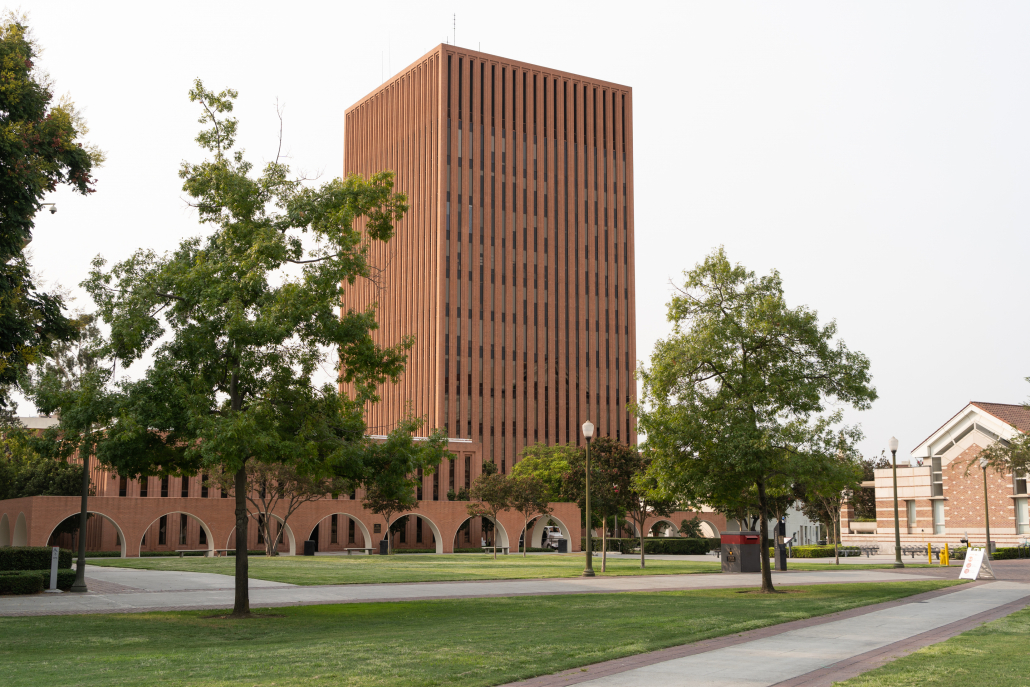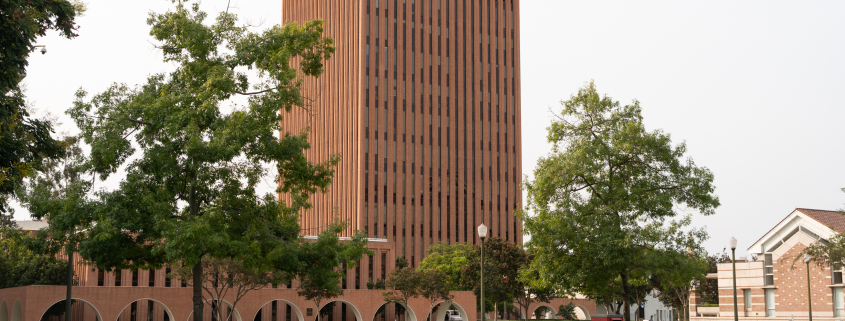The Education (Re)Open to implement education solutions

As schools prepare to return to normal, USC Rossier’s center EDGE created a platform to harness innovative solutions within the realm of education and prevent further inequity within the sector.
To address faults in the education system exacerbated by the pandemic, USC Rossier’s Center Edge launched The Education (Re)Open — a four-phase program that looks to implement education solutions derived from the community — late-March. In its first phase, the solution phase, The Education (Re)Open looks to highlight innovative solutions via a competition format and provide local schools with ideas to implement during a full return.
“The idea is to have innovative solutions that people can implement into their specific ecosystem into their particular areas of study,” said Alan Arkatov, the founding director of USC’s center EDGE and leader at The Education (Re)Open.
The Education (Re)Open is an opportunity to strengthen communities and enhance well being with the return to classrooms, in addition to online learning, Arkatov said. The program is particularly looking for solutions to enhance the Los Angeles community, particularly within K-12 schools. Over the course of 10 weeks, The Education (Re)Open is inviting and showcasing solutions from everyone navigating the challenges facing school communities during the pandemic.
Not only is the competition largely focused on providing a platform for solutions, but it also looks to implement the submitted ideas.
“We are at the epicenter of the imagination economy here in [Los Angeles],” Arkatov said. “We’ve got all this talent, and we’re not leveraging it for education, so that’s our mission on this thing — to engage as many folks with innovative solutions, and then put them into action.”
Up to one hundred solutions will each receive $1,000 for being featured. Following the selection process, The Education (Re)Open will unveil the “Solution Exchange,” a website for parents, teachers and students to access solutions and implement ideas into their own environment.
“We’re going to have other schools around the country pushing this out to their students,” Arkatov said. “We’re pushing [the competition] out among community organizations, education organizations, groups big and small. It can be parent groups, it could be teacher groups, it can be educator groups, all of the above.”
The competition format will also attempt to showcase solutions that were implemented at schools but didn’t scale widely or new innovative solutions that came to light during the last year of the pandemic, according to Arkatov, founding director of USC’s Center EDGE.
Arkatov expects the submitted solutions will cover a range of topics — including racial and financial inequality, lack of resources and changes to schedules —particularly because of the three broad categories including communities reconnecting, collaborative teaching/learning/leadership and collective health/wellbeing.
The pandemic itself and the need to change education for a full return to in-person learning created the perfect time for the competition, Alan Arkatov said.
“I think we’re at this inflection point in education history and this is a unique moment in time where we can really take the best practices and be able to highlight them,” Arkatov said.
The submission process for The Education (Re)Open is simple and open to anyone passionate about redefining education, regardless of geographic location, according to Arkatov.
“I’m really looking forward to knowing that we’re giving those that know education best — the students, the educators, the parents — we’re giving them a voice to actually be able to see the change that they’ve always wanted to be the right thing,” he said.
Arkatov said the means of finding suggestions for the return to in-person instruction relies on crowdsourcing education solutions to the people who know it best — parents, students and educators.
“That’s just not the way education has been done in the past,” Arkatov said. “Not to say everything was bad or everything was great, but there are some amazing innovative solutions that haven’t been put into practice.”
Following the submission deadline, an evaluation phase, solution exchange and implementation phase will take place, Arkatov said. There are a series of schools within L.A. county that have signed on not only to submit ideas but to implement. However, the implementation phase has yet to be designed until solutions are chosen.
Arkatov said he believes there has never been a similar program like The Education (Re)Open’s because of the barriers of school boundaries and districts, particularly as different education rules and standards exist throughout the United States. Even within states, there are unique districts, totaling to over 13,000 school districts in the country. It was these challenges that showed that The Education (Re)Open would need funding in order to be successful.
Andrew Nikou, USC alum and founder of the Andrew Nikou Foundation, agreed to fund The Education (Re)Open. The Andrew Nikou Foundation is a foundation which breaks through traditional silos of working by partnering and investing in scalable solutions and ideas that can improve the lives of people who are disconnected and oppressed.
“The most urgent need became, how can we help the true frontliners of this challenge that has been the last 13 months — the educators, the unwilling understudies, the parents who overnight became an educator,” said Jules Ho, executive director at the Andrew Nikou Foundation.
Ho said the foundation found it important to support and fund the The Education (Re)Open program, particularly during the challenges of the pandemic, with multi-generational challenges, and the need to prevent further coronavirus spikes.
“All [the mentioned challenges] dynamics speak to a larger social goal of this current time,” Ho said. “It’s necessary to get behind this, we do believe, Andrew personally believes, that education is the key to if not everything, almost everything. The concept of how the pandemic has eroded, or exacerbated rather, the failings, the dark corners of this picture, and the notion that there are students who are being even more left behind and disconnected was something that we were keenly aware of.”
Antwane Abraham, a junior at USC Hybrid High School, works with The Education (Re)Open within the context of his school and provides information and insight on reopening in the fall. Abraham said he personally struggled with learning during online school and said he hopes to help make the environment a more diverse and equitable space.
“I believe that The Education (Re)Open is going to have an amazing impact on students because more students will be able to learn and be hands on with teachers and it will also help students’ mental health because they will be able to socialise with others and not just through a screen,” Abraham said in an email to the Daily Trojan.
For Ho, she sees the solutions derived from the submissions as a way to improve lives and empower oppressed demographics.
“We seek to partner with folks who have big ideas and big aspirations to create sustainable, scalable, positive change in our community,” Ho said. “We seek to empower those individuals in our community and society at large that basically would be otherwise left behind, oppressed or disconnected.”
Correction: A previous version of this article misstated The Education (Re)Open’s name as Education (Re)Open. A previous version of this article also included wording that was vague, and has since been clarified. The Daily Trojan regrets these errors.

